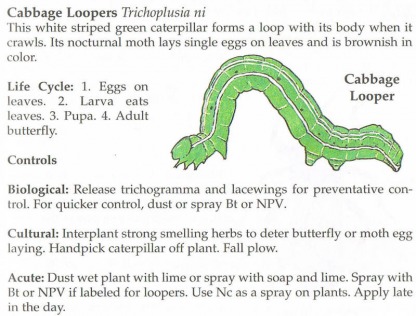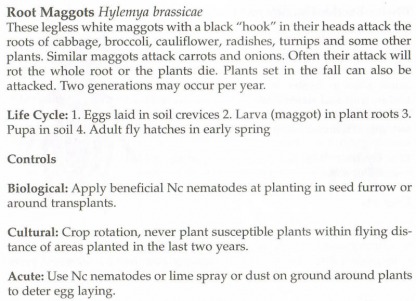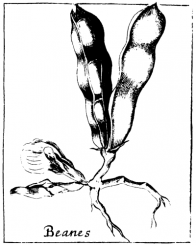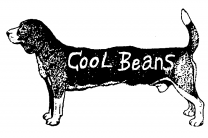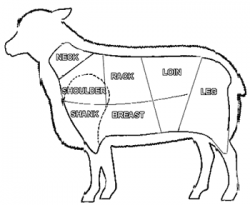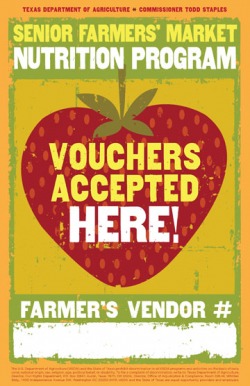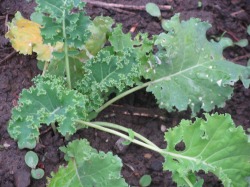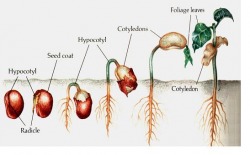Coalfields Growers Monthly july 2010
SNAP at Wyoming County Market
Exciting news—the Wyoming County Farm Market has been approved to accept SNAP benefits as payment at the market this year!
The market will use one card machine for all vendors, selling produce using a token system. Shoppers will simply buy the dollar amount they plan to spend and receive unique tokens in that amount. Vendors will then accept the tokens in exchange for produce and turn in their tokens for a check from the market manager.
What a great opportunity to sell to more customers—increased sales for vendors and more delicious food into the homes of people in Wyoming County!
The market will use one card machine for all vendors, selling produce using a token system. Shoppers will simply buy the dollar amount they plan to spend and receive unique tokens in that amount. Vendors will then accept the tokens in exchange for produce and turn in their tokens for a check from the market manager.
What a great opportunity to sell to more customers—increased sales for vendors and more delicious food into the homes of people in Wyoming County!
McDowell County Market Has Started!
McDowell has 2 locations: Old School in Caretta and the Welch EDA (by the DMV downtown).
Both markets run Saturdays from 9am-1pm. More vendors are welcome!
Both markets run Saturdays from 9am-1pm. More vendors are welcome!
Milam Creek Festival
Friends of Milam Creek in McGraws is having a festival at the Milam Creek Park (John McGraw Grade School). The festival will feature a traveling exhibit of the WV Music Hall of Fame, storytelling performance by Karen Vuranch, FIREWORKS, games, great food, and crafts.
Saturday July 17, 12:00-8:00pm
Bring the kids to sing in the real recording booth!
Saturday July 17, 12:00-8:00pm
Bring the kids to sing in the real recording booth!
July Workshop
--Pest Control
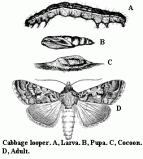
Do you have worms on your broccoli? No?? Come share your secrets of keeping the little enemies robbing you of your leafy plants. If you've got tips, bring them with you. If you need help, come find it at the July workshop with Farming for Health & Wealth: July 20th, 6:30pm at the MOC garden. FREE as always!
WHAT'S ON YOUR LEAVES?
SNAP Operator Needed
Since the Wyoming County Farm Market now has the ability to accept SNAP cards, the market is now looking for someone to operate the card machine and be responsible for tokens. The SNAP operator would work closely with the market manager to insure that vendors are paid correctly and tokens are not lost.
This is a volunteer position with a travel stipend.
This is a volunteer position with a travel stipend.
Diabetes Prevention Grant Begins New Partnership for Health
Farming for Health & Wealth is happy to announce that the program has just received a grant to partner with the Wyoming County Diabetes Prevention program to conduct regular cooking demonstrations using fresh local ingredients. The demonstrations will be put online for public viewing! The program is currently offering a paid internship to an individual interested in nutrition and who can be creative and take initiative! Interested persons please call 294.6226 or email [email protected]
Resource Spotter: GrowVeg.com

For the beginning gardener, GrowVeg.com has a variety of functions to help get your garden growing in the right direction. The main feature of the site is a garden planning tool. This online tool allows users to plot out their garden and clearly see the spacing required for good healthy crop yields, without having to look up spacing and behavior yourself.
The website also has a wealth of free information available in blogs and an online “GrowGuide” library with resources on pest control and crop rotation, as well as ideas about permaculture and seed saving.
GrowVeg.com offers a free trial of their planning tool, and a paid subscription to use it is $25/year.
Check it out—www.growveg.com
The website also has a wealth of free information available in blogs and an online “GrowGuide” library with resources on pest control and crop rotation, as well as ideas about permaculture and seed saving.
GrowVeg.com offers a free trial of their planning tool, and a paid subscription to use it is $25/year.
Check it out—www.growveg.com
Farming for Health & Wealth Says Goodbye to Jack

Jack Seitz has been managing the garden and the workshops program since he moved to Mullens from his Morgantown home in 2008. Jack has put so much time and sweat into making a space for people to come garden together and space for people to gather and talk about garden and farming issues. We are unspeakably grateful to have had him with us. Jack will be going to school this fall in Indiana, and we wish him all the best that the future holds. Come back and visit us often, Jack!
A "Berry" Good Quote
So, I figured that all good magazines need a little healthy propaganda. But rather than spout my own ideas about why gardening is so great, I thought I would just put in a little excerpt from a Kentucky farmer named Wendell Berry. The following words are from a book of essays he wrote called TheArtoftheCommonplace.
“Only by restoring broken connections can we be healed. Connection is health. And what our society does its best to disguise from us is how ordinary, how commonly attainable, health is. We lose our health—and create profitable diseases and dependencies—by failing to see the direct connections between eating and living, living and working, working and loving. In gardening, for instance, one works with the body to feed the body. The work, if it is knowledgeable, makes for excellent food. And it makes one hungry. The work thus makes eating both nourishing and joyful, not consumptive, and keeps the eater from getting fat and weak. This is health, wholeness, a source of delight. And such a solution, unlike the typical industrial solution, does not cause problems.
“The 'drudgery' of growing one's own food, then, is not drudgery at all. (If we make the growing of food a drudgery, which is what 'agribusiness' does make of it, then we also make a drudgery of eating and living.) It is—in addition to being the appropriate fulfillment of a practical need—a sacrament, as eating is also, by which we enact and understand our oneness with the Creation, the conviviality of one body with all bodies.” Wendell Berry literature will soon be available in the Farming for Health and Wealth office (2nd floor of the MOC). Stay Tuned.
“Only by restoring broken connections can we be healed. Connection is health. And what our society does its best to disguise from us is how ordinary, how commonly attainable, health is. We lose our health—and create profitable diseases and dependencies—by failing to see the direct connections between eating and living, living and working, working and loving. In gardening, for instance, one works with the body to feed the body. The work, if it is knowledgeable, makes for excellent food. And it makes one hungry. The work thus makes eating both nourishing and joyful, not consumptive, and keeps the eater from getting fat and weak. This is health, wholeness, a source of delight. And such a solution, unlike the typical industrial solution, does not cause problems.
“The 'drudgery' of growing one's own food, then, is not drudgery at all. (If we make the growing of food a drudgery, which is what 'agribusiness' does make of it, then we also make a drudgery of eating and living.) It is—in addition to being the appropriate fulfillment of a practical need—a sacrament, as eating is also, by which we enact and understand our oneness with the Creation, the conviviality of one body with all bodies.” Wendell Berry literature will soon be available in the Farming for Health and Wealth office (2nd floor of the MOC). Stay Tuned.
Wyoming & McDowell Market Times
Let the Markets Begin! Market places, times and start-up dates below.
County Location Day Time Start Date
Wyoming Old Mullens Elementary Saturdays 8am-12pm July 10
McDowell Old School in Caretta Saturdays 9am-1pm already started!
McDowell Welch EDA (by DMV) Saturdays 9am-1pm already started!
County Location Day Time Start Date
Wyoming Old Mullens Elementary Saturdays 8am-12pm July 10
McDowell Old School in Caretta Saturdays 9am-1pm already started!
McDowell Welch EDA (by DMV) Saturdays 9am-1pm already started!
"What I Learned" parting thoughts from farmer Jack
I originally came to Mullens for what was supposed to be 9 months to start a farmers market. Now, 20 months later, as I get ready to go back to school and leave Wyoming County (at least for a bit), I’m a bit struck by how the school won’t have much to teach me. Much like the adage, “Everything you need to know, you learn in Kindergarten,” most everything I know that’s worth knowing, I learned here.
I learned to stake my tomatoes on the north side so as not shade the plants; that potatoes should be planted on Good Friday; that even if you’ve got your garden in early and all seems well, it may still end up in RD Bailey Lake. I learned that sun is a gift (usually only hanging around between 11 and 3); that those with the least often give the most; that you shouldn’t put your tomatoes out till after the blackberry blooms; that bed bugs can be taken care of with a mixture of kerosene, paint, and mud; and that whatever anyone says, coal isn’t King, pole beans are. I learned you all aren’t Marshall fans, and it's okay to be proud of being from Morgantown; that ramps do live up to the hype; and that hot dogs are better with slaw.
Most importantly, I learned that if I find my way back here, there will always be some of the kindest, smartest, most welcoming folks I’ve ever met, waiting to stuff me full of beans and cornbread and make me feel at home again.
I learned to stake my tomatoes on the north side so as not shade the plants; that potatoes should be planted on Good Friday; that even if you’ve got your garden in early and all seems well, it may still end up in RD Bailey Lake. I learned that sun is a gift (usually only hanging around between 11 and 3); that those with the least often give the most; that you shouldn’t put your tomatoes out till after the blackberry blooms; that bed bugs can be taken care of with a mixture of kerosene, paint, and mud; and that whatever anyone says, coal isn’t King, pole beans are. I learned you all aren’t Marshall fans, and it's okay to be proud of being from Morgantown; that ramps do live up to the hype; and that hot dogs are better with slaw.
Most importantly, I learned that if I find my way back here, there will always be some of the kindest, smartest, most welcoming folks I’ve ever met, waiting to stuff me full of beans and cornbread and make me feel at home again.
- - - - - - - - - - - - - - - - - - - - - -
Coalfields Growers Monthly june 2010
Beans, Beans! good for your heart and so much more...

Ever thought about “companion planting?” Growing green beans and strawberries together, and Bibb lettuce and spinach, can be a great way to healthier plants. On the other end of the spectrum, onions, garlic, chives, and shallots can seriously inhibit the growth of peas and beans. In between the extremes, bush beans and beets may be grown together with no particular advantage or disadvantage to either plant. Pole beans and beets, however do not get along well. The nuances are amazing. What is the difference between bush and pole beans? No one appears to know the scientific reason yet for this difference in behavior, but it can be observed.
Here are some ideal bean combinations and some detrimental mixes:
BeanType: Companions: Antagonists:
Beans Potatoes, carrots, cucumbers, cauliflower, cabbage Onions, garlic, gladiolus, chives
BushBeans Potatoes, cucumbers, corn, strawberries, celery Onions
PoleBeans Corn, summer savory, sunflowers Onions, beets, kohlrabi
*as cited in John Jeavons’s How to Grow More Vegetables from Organic Gardening and Farming
Here are some ideal bean combinations and some detrimental mixes:
BeanType: Companions: Antagonists:
Beans Potatoes, carrots, cucumbers, cauliflower, cabbage Onions, garlic, gladiolus, chives
BushBeans Potatoes, cucumbers, corn, strawberries, celery Onions
PoleBeans Corn, summer savory, sunflowers Onions, beets, kohlrabi
*as cited in John Jeavons’s How to Grow More Vegetables from Organic Gardening and Farming
Garden Tours
If you have attended a Farming for Health & Wealth garden workshop, you may recall that it has been a goal to start squeezing some other events in on Thursdays between monthly workshops. Last month, thanks to Kay Wilson of Corinne Bottom, the first in-between tour took place!
The turnout was small, but earnest, and a good mix of experienced and novice growers! Mr. Wilson showed the group around his vegetable garden, elaborating on his composting process for adding nutrients without having to buy fertilizer, and even let us sample some of last year's strawberries from the freezer. I can't wait to see how our host's latest project turns out—potatoes in old tires! No hilling required!
Watch the Mullens Advocate for announcements about more great garden tours and other Farming for Health & Wealth events coming up. Or just come out to this month's Thursday workshop and find out there!
The turnout was small, but earnest, and a good mix of experienced and novice growers! Mr. Wilson showed the group around his vegetable garden, elaborating on his composting process for adding nutrients without having to buy fertilizer, and even let us sample some of last year's strawberries from the freezer. I can't wait to see how our host's latest project turns out—potatoes in old tires! No hilling required!
Watch the Mullens Advocate for announcements about more great garden tours and other Farming for Health & Wealth events coming up. Or just come out to this month's Thursday workshop and find out there!
Small Ruminants Workgroup
The Extension agent for Raleigh/Summers Counties has teamed up with Taylor’s Meat Processing Facility to work with local farmers who want to develop a marketing and processing cooperative working group.
This work group could be for you! You should get involved if you:
The group is in the very beginning stages, so now is a great time to get your ideas and needs on the table! The soonest start time would be fall, but more likely next spring.
Contact Dave Richmond via email at [email protected] or by calling 255.9321 or 466.7113
This work group could be for you! You should get involved if you:
- have goats or sheep and would like to have access to a guaranteed market
- would consider raising goats or sheep to sell but want someone to do the marketing for you
The group is in the very beginning stages, so now is a great time to get your ideas and needs on the table! The soonest start time would be fall, but more likely next spring.
Contact Dave Richmond via email at [email protected] or by calling 255.9321 or 466.7113
Farm Market Coupons
Two programs are offering coupons to eligible people that are exclusively for use at the local farm markets!
Many people are already familiar with the Women, Infants, and Children (WIC) market voucher program. The Senior Farmers Market Nutrition Program provides eligible senior citizens with coupons that may be used at the Wyoming and McDowell County markets. This means fresh fruits and vegetables for senior citizens without having to pay out of pocket.
Not only is this great news for senior shoppers, it's also great for growers selling at the Mullens market and McDowell County markets this year—Past years have seen distribution of coupons amounting to $15,000 in McDowell County and $20,000 in Wyoming County—all just for use at farm markets!
Many people are already familiar with the Women, Infants, and Children (WIC) market voucher program. The Senior Farmers Market Nutrition Program provides eligible senior citizens with coupons that may be used at the Wyoming and McDowell County markets. This means fresh fruits and vegetables for senior citizens without having to pay out of pocket.
Not only is this great news for senior shoppers, it's also great for growers selling at the Mullens market and McDowell County markets this year—Past years have seen distribution of coupons amounting to $15,000 in McDowell County and $20,000 in Wyoming County—all just for use at farm markets!
Seniors interested in obtaining free vouchers can get them here:
McDowell County: McDowell County Commission on Aging
725 Stewart St. in Welch
Wyoming County: Council on Aging
Route 10 in Itmann
- - - - - - - - - - - - - - - - - - - - - - - - - -
McDowell County: McDowell County Commission on Aging
725 Stewart St. in Welch
Wyoming County: Council on Aging
Route 10 in Itmann
- - - - - - - - - - - - - - - - - - - - - - - - - -
Portuguese Kale & Bean Soup
-recipe donation a la Savanna Lyons
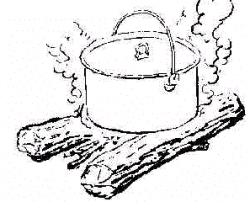
- 1 tbsp olive oil
1 lb sausage (spicy is best!), cut into tiny pieces
1 qt. chicken broth
1 lg. onion, diced
4 lg. potatoes, cubed
1 bunch kale, stemmed, washed, and chopped
1 ½ cups elbow macaroni pasta
1 can kidney beans
Black pepper and Salt (optional)
Drain on paper towels
Add other ingredients except kale & pasta
Bring to a boil; simmer 10 minutes
Add kale & pasta and simmer 8 minutes
Taste for season; depending on spiciness of sausage, add salt/pepper
Serve piping hot!
Great with crusty French bread. This soup also freezes well, so make extra!
Serves about six people.
may 2010 Coalfields Growers Journal
7 rules about growing Brassicas -Jack Seitz

- If it’s yellow… FEED IT! Brassicas are heavy feeders. Yellow means that something is missing, and most likely it's nitrogen. Brassicas love nitrogen.
- Brassicas love unfinished compost. After its started breaking down, but before its nice finished compost, spread it around the plants and work it in lightly with a hoe. Compost in nitrogen, and again, Brassicas love nitrogen.
- Plant Brassicas in the best soil in your garden: well-drained and rich in organic matter—because Brassicas love nitrogen!
- Use offset spacing instead of row spacing to fit more Brassicas in less space.
- Plant early in the spring. Brassicas love cool weather. Instead of summer growing, try Brassicas for a fall crop as well as a spring crop, especially with turnips and kale and cabbage.
- Follow spacing recommendations on the seed packet. Fall cabbages can require up to 20 inch spacing. If your cabbages don’t have enough room, you’ll get mini-cabbages (which may not be a bad thing—maybe we should try that…).
- Slugs love Brassicas.....Try using beer traps to control them: Dig a hole in the bed big enough for a beer can; open the can and bury it up to its lip; the slugs love the beer more than the cabbage, so they crawl into the beer and drown.
Around the Corner:
...a look at what's going on in the area!
Sustainable Agriculture in McDowell County
Big Creek People in Action (BCPIA) is assisting with a program of local growers to increase their yield, market their crops and help distribute in the best way possible.
BCPIA has identified 2 Farmer’s Market locations. One is located at the old War Elementary School site which the county is developing into a park. The other location is Premier Park, located on Rt. 52 at the top of Premier Mountain.
Since we want to support our local producers, the markets will allow only locally grown West Virginia produce to be sold. Additionally, we will jury products hand-produced by local citizens to sell at the markets.
In cooperation with Farming for Health and Wealth in Wyoming County and other organizations, we will be offering workshops to local growers where people can share best practices, assist with food safety regulations, and we can also assist with securing possible funding for expansion.
We will also be sharing new techniques to backyard growers to maximize the most production from the smallest areas. BCPIA is very excited about aiding the movement in McDowell County to create a whole sustainable food system, providing fresh local products, tastier choices, and complete nutrition.
For more information contact: Jo-Claire Corcoran, Executive Director at 304-875-3418
BCPIA has identified 2 Farmer’s Market locations. One is located at the old War Elementary School site which the county is developing into a park. The other location is Premier Park, located on Rt. 52 at the top of Premier Mountain.
Since we want to support our local producers, the markets will allow only locally grown West Virginia produce to be sold. Additionally, we will jury products hand-produced by local citizens to sell at the markets.
In cooperation with Farming for Health and Wealth in Wyoming County and other organizations, we will be offering workshops to local growers where people can share best practices, assist with food safety regulations, and we can also assist with securing possible funding for expansion.
We will also be sharing new techniques to backyard growers to maximize the most production from the smallest areas. BCPIA is very excited about aiding the movement in McDowell County to create a whole sustainable food system, providing fresh local products, tastier choices, and complete nutrition.
For more information contact: Jo-Claire Corcoran, Executive Director at 304-875-3418
Reminder--New Community Gardens in McGraws
Friends of Milam Creek is starting a community garden in the Milam Creek Park in the community of McGraws. An “Eco-Steward” intern will start community development and organization efforts, and all crops grown will be donated to the House of Hope Food Pantry to distribute to local families in need. Efforts are being made to insure that all crops grown are native to West Virginia. Contact Brigid Belko at the old McGraws School to learn more about involvement in any capacity.
* * * * * *
Workshop in May:
Tomatoes!
THURSDAY MAY 20
--6:30pm--
Meet at the gardens at the old Mullens Elementary School.
* * * * * *
THURSDAY MAY 20
--6:30pm--
Meet at the gardens at the old Mullens Elementary School.
* * * * * *
HEY SHOW-OFF...
Interested in showing off your garden? Novice growers are interested in learning from you. If you would like to help out by hosting a small group of novice growers at your garden/farm site, please contact Rebekah or Jack at FHW: 294.6226
march 2010 Coalfields Growers Journal
Dear Readers, (a note about this journal)
Welcome to the Coalfields Growers Community Newsletter. If you are reading this, it is because you are among the dedicated people in the community of growers near Wyoming and McDowell Counties of West Virginia. Perhaps you have been growing food since your grandfather first taught you how to hill potatoes, or maybe you're interested in eating food tastier than the average pink grocery store tomato. Perhaps you supported the Farm Market in Pineville last summer, or came to the Cold Frame Workshop in Mullens.
We all understand that growing food takes a great deal of work. There is a community of people just like ourselves (ok, maybe not JUST like us, but close enough!) that offers a wealth of wisdom. That community needs your input, too! And it is right around us.
This newsletter was born to help us help each other. If we can share stories from our failures, we can save our neighbor the trouble of making the same mistake. If our neighbor can share their successes, we might be encouraged to try something new. If we can ask each other questions, we can get answers from up the road, not just up-state. And if we can connect based on our common experiences, we can share in our victories—and our harvests!
As our community grows, this newspaper hopes to be a place for stories, articles, advice, and more from you. No offering of wisdom or news is too small.
The pages that follow in this introduction are just a few announcements of upcoming events and highlights of last season's accomplishments. Please read on, and pass it along to a friend. Maybe you'll come to a meeting and pass along a tip or learn something new yourself. The hope is for us to make new friends, and to raise better produce and livestock.
~Farming for Health & Wealth
We all understand that growing food takes a great deal of work. There is a community of people just like ourselves (ok, maybe not JUST like us, but close enough!) that offers a wealth of wisdom. That community needs your input, too! And it is right around us.
This newsletter was born to help us help each other. If we can share stories from our failures, we can save our neighbor the trouble of making the same mistake. If our neighbor can share their successes, we might be encouraged to try something new. If we can ask each other questions, we can get answers from up the road, not just up-state. And if we can connect based on our common experiences, we can share in our victories—and our harvests!
As our community grows, this newspaper hopes to be a place for stories, articles, advice, and more from you. No offering of wisdom or news is too small.
The pages that follow in this introduction are just a few announcements of upcoming events and highlights of last season's accomplishments. Please read on, and pass it along to a friend. Maybe you'll come to a meeting and pass along a tip or learn something new yourself. The hope is for us to make new friends, and to raise better produce and livestock.
~Farming for Health & Wealth
2010 Growers Groups
The Mullens Growers Community group presents an opportunity for growers in the area to come together to share wisdom and ask each other questions. Meetings can take on all different formats, such as: discussion-based, a showcase of a particular crop/practice, an informative session on your favorite fertilizer, or a hands-on workshop. And anyone can lead a meeting.
One rotation per month will be a workshop by Farming for Health and Wealth coordinator Jack Seitz at the Coalfields Demonstration Farm in Pierpoint, or at the M.O.C.
Come and be a part of Mullens Growers, actively shaping the farming and gardening community. The group is young, and there is opportunity to contribute all your ideas! Meeting time will be decided by those in attendance at the March workshop. To find out times, call 294.6226 or watch The Advocate and The Register Herold.
One rotation per month will be a workshop by Farming for Health and Wealth coordinator Jack Seitz at the Coalfields Demonstration Farm in Pierpoint, or at the M.O.C.
Come and be a part of Mullens Growers, actively shaping the farming and gardening community. The group is young, and there is opportunity to contribute all your ideas! Meeting time will be decided by those in attendance at the March workshop. To find out times, call 294.6226 or watch The Advocate and The Register Herold.
New Community Garden! -Brigid Belko
Wyoming County's Friends of Milam Creek organization is starting a community garden in the Milam Creek Park. An “Eco-Steward” intern will start community development and organization efforts, and all crops grown will be donated to the House of Hope Food Pantry to distribute to local families in need. Efforts are being made to insure that all crops grown are native to West Virginia.
Friends of Milam Creek serves the communities of McGraws, Milam, and Ravencliff in Wyoming County. Milam Creek Park and the Eco-Steward intern are sponsored by the Mullens Ministereal Association, Presbyterian Church U.S.A., the Itmann Food Pantry, and the House of Hope Food Pantry.
Growing Your Own Transplants -Jack Seitz
The need for good quality seed and transplants is almost as important as soil fertility or water in growing a good garden. When it comes to transplants, I employ the old adage, “if you want something done right, you gotta do it yourself.”
The benefits of growing your own transplants include: disease control, increased choice of varieties (which also helps control diseases and pests), and cost savings. I don’t import anything into my garden unless I trust the source. Off-site transplants are one of the primary ways that diseases invade our gardens. In fact, last year’s disaster with late blight was traced back to diseased transplants that were distributed to the entire east coast through big box retailers.
Once in the region, the spores can travel 100 miles, making the blight difficult to avoid even for those of us who grew our own transplants. However, other plant diseases like Early Blight, Verticillium Wilt , and Mosaic Virus can also be brought into the garden by outside transplants. On the other hand, seed is much less likely to carry disease (and those of us wily enough to save seed can avoid even this minimal risk).
I am often disappointed at the lack of new and interesting varieties available at plant centers in the area. It seems the only choice is often between Better Boys and Big Beef tomatoes (both certainly good varieties). But this year through seed catalogs, I counted over 30 different tomato varieties to choose from, and that was only scratching the surface. Diseases and pests learn how to attack varieties that become too prevalent (this is nature’s way of keeping things in balance). Growing different varieties of the same crop protects our harvest—if one variety doesn’t make it, another will.
Finally, cost. Transplants are expensive! A single pink beauty tomato seed costs me around eight cents, versus $2-$4 for a transplant of the same tomato.
Growing your own transplants can be as complex as purchasing a light table and grow lights, or as simple as plastic cups or egg cartons on a windowsill with or without saran wrap covering the top to form a mini-greenhouse.
The keys are temperature, moisture, and light, regular monitoring to make sure they don’t dry out, become spindly, or just don’t germinate and adjust accordingly. Keep them constantly moist and make sure the soil temperature is right. (The back of the seed packet will give you soil temperatures at which the seeds germinate best.) Remember hotter is not always better. Tomatoes and peppers may like it hot [70-90 degrees], but other crops like lettuce like it nice and cool [40-50 degrees].
The benefits of growing your own transplants include: disease control, increased choice of varieties (which also helps control diseases and pests), and cost savings. I don’t import anything into my garden unless I trust the source. Off-site transplants are one of the primary ways that diseases invade our gardens. In fact, last year’s disaster with late blight was traced back to diseased transplants that were distributed to the entire east coast through big box retailers.
Once in the region, the spores can travel 100 miles, making the blight difficult to avoid even for those of us who grew our own transplants. However, other plant diseases like Early Blight, Verticillium Wilt , and Mosaic Virus can also be brought into the garden by outside transplants. On the other hand, seed is much less likely to carry disease (and those of us wily enough to save seed can avoid even this minimal risk).
I am often disappointed at the lack of new and interesting varieties available at plant centers in the area. It seems the only choice is often between Better Boys and Big Beef tomatoes (both certainly good varieties). But this year through seed catalogs, I counted over 30 different tomato varieties to choose from, and that was only scratching the surface. Diseases and pests learn how to attack varieties that become too prevalent (this is nature’s way of keeping things in balance). Growing different varieties of the same crop protects our harvest—if one variety doesn’t make it, another will.
Finally, cost. Transplants are expensive! A single pink beauty tomato seed costs me around eight cents, versus $2-$4 for a transplant of the same tomato.
Growing your own transplants can be as complex as purchasing a light table and grow lights, or as simple as plastic cups or egg cartons on a windowsill with or without saran wrap covering the top to form a mini-greenhouse.
The keys are temperature, moisture, and light, regular monitoring to make sure they don’t dry out, become spindly, or just don’t germinate and adjust accordingly. Keep them constantly moist and make sure the soil temperature is right. (The back of the seed packet will give you soil temperatures at which the seeds germinate best.) Remember hotter is not always better. Tomatoes and peppers may like it hot [70-90 degrees], but other crops like lettuce like it nice and cool [40-50 degrees].
?Like the Title?
hate it?
“Coalfields Growers Journal” is currently a temporary name for this little paper. If you like it, great! If you have any other ideas, please let Rebekah know: 294.6226 or [email protected]
?Are You Online?
If you are, check out Rebekah's Blog. At springathing.blogspot.com you can find updates of the growers groups and the Coalfields Demonstration Farm as they grow! Blogs will be posted as things develop, or at least once a week.
Planning Your Garden -Jack Seitz
“Those who fail to plan, plan to fail.” This is true even for those of us who keep a small garden. Planning our garden doesn’t have to be hard work. The key for those of us with limited space is to prioritize. Here are a few rules I use:
- Grow foods that are more expensive: Baby spinach, lettuce, and sweet peas are expensive at the grocery store. It's easy to grow an ample supply, especially in the cooler months.
- Grow foods that are tastier when fresh: No one will argue with the superiority of a homegrown tomato. Other crops like carrots, cauliflower, & parsnips are also much tastier fresh and homegrown. Try growing more of them on your own.
- Grow foods that you and your family enjoy: Don’t get stuck with a garden full of tomatoes if no one in your family eats them just because that’s what everyone else grows. Even though Swiss Chard is easy, you’ll never see any Swiss Chard growing in my garden, ever!
- Grow crops that are space efficient: Lettuce takes up a tiny amount of space for a very short period of time, and other crops like tomatoes and peppers and kale will produce new crops for several weeks. Sweet corn, while delicious, is a space hog and a nitrogen hog.
- Re-use areas when an early crop finishes: I replant anywhere that I’ve had lettuce or peas or spring cabbage because these crops give out when the weather gets hot. You can replant with a late crop like winter squash, buckwheat, or leeks.
- Okra: 3-4 plants per person
- Tomatoes: 3 plants per person
- Cukes: 4 plants per person
- Zukes/Summer Squash: 1 plant per 1,000 people
- Green (bush) beans: 5 row feet per person
- Green (pole) beans: 3 row feet per person
- Sweet peppers: 1 plant per person
Oldie but a Goodie...
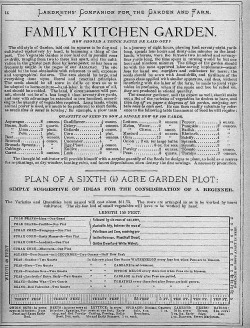
This is an old page out of a 1796 issue of Landreth's Catalog. You can right-click to save the image and zoom in for better viewing.
Decide the Location of the Farm Market
Last year's market was in Pineville. Current suggestions include relocating to Mullens or creating a “mobile market.” All suggestions are welcome. Meeting will be held sometime in April, exact day and time to be announced in The Mullens Advocate and The Beckley RegisterHerold. Please come and share your thoughts.
The efforts to create a weekly farm market in Pineville in 2009 were fruitful, one week seeing as many as 65 patrons visiting the Saturday morning market, and six vendors participating throughout the season. Some weeks had a poor turnout, however. Growers in Mullens have mentioned relocation might cause more people to attend. This and other ideas for a better market can be discussed at the community meeting in April. Watch the Advocate and Register Herold for dates!
The efforts to create a weekly farm market in Pineville in 2009 were fruitful, one week seeing as many as 65 patrons visiting the Saturday morning market, and six vendors participating throughout the season. Some weeks had a poor turnout, however. Growers in Mullens have mentioned relocation might cause more people to attend. This and other ideas for a better market can be discussed at the community meeting in April. Watch the Advocate and Register Herold for dates!

